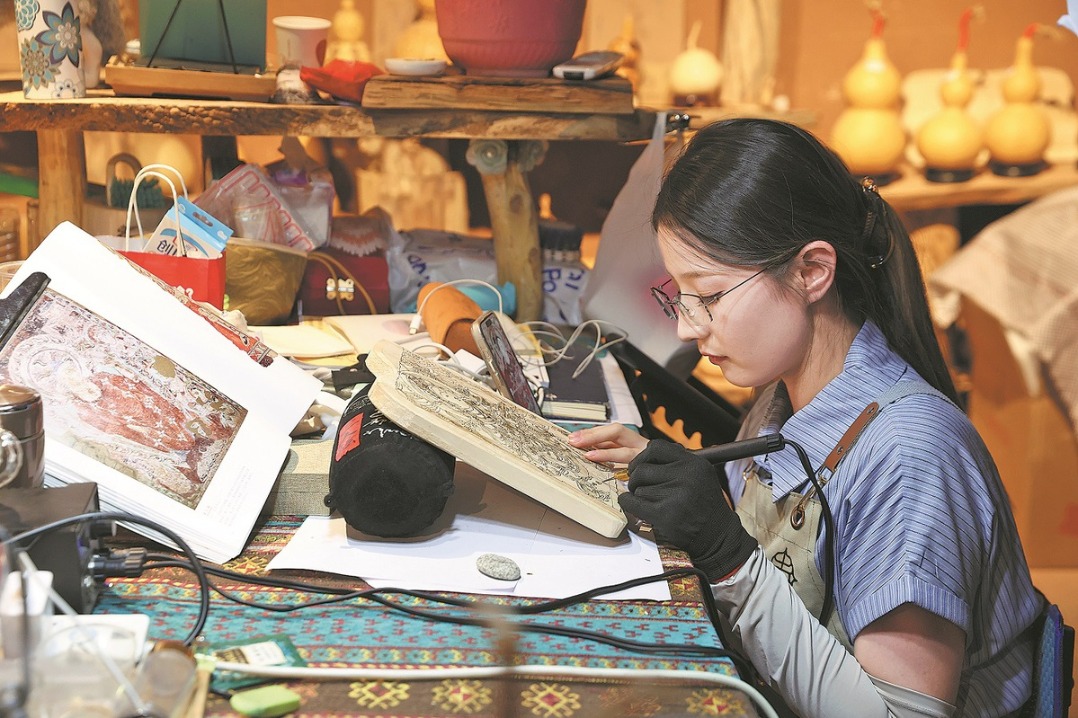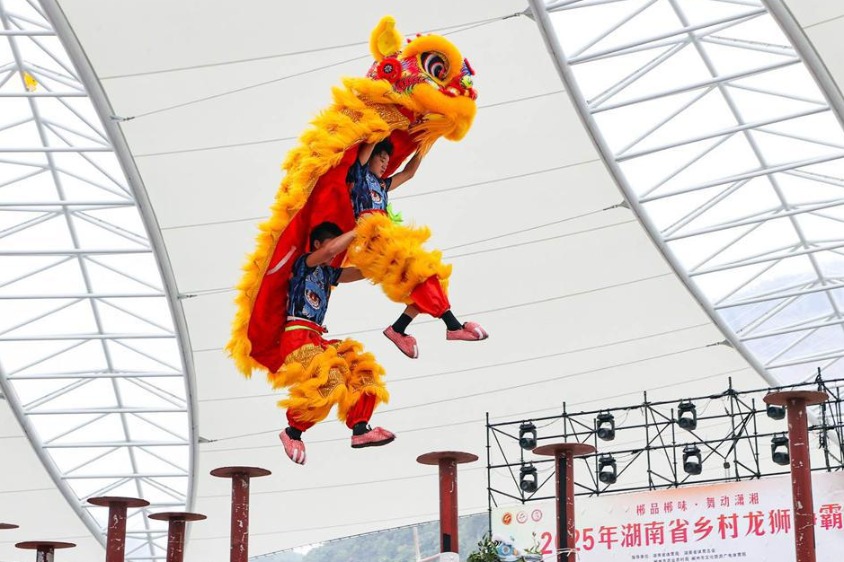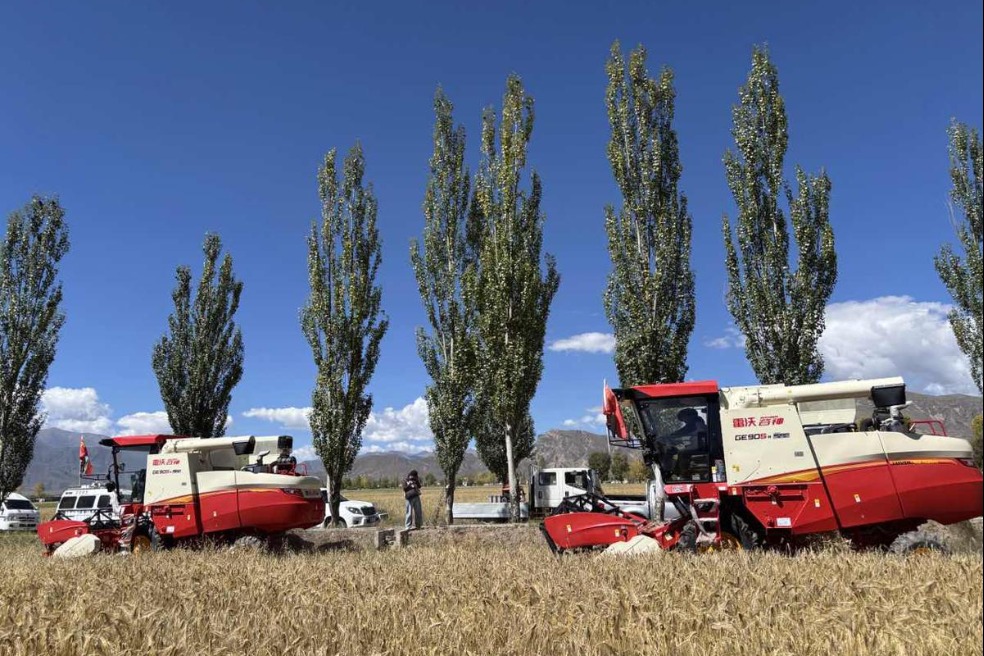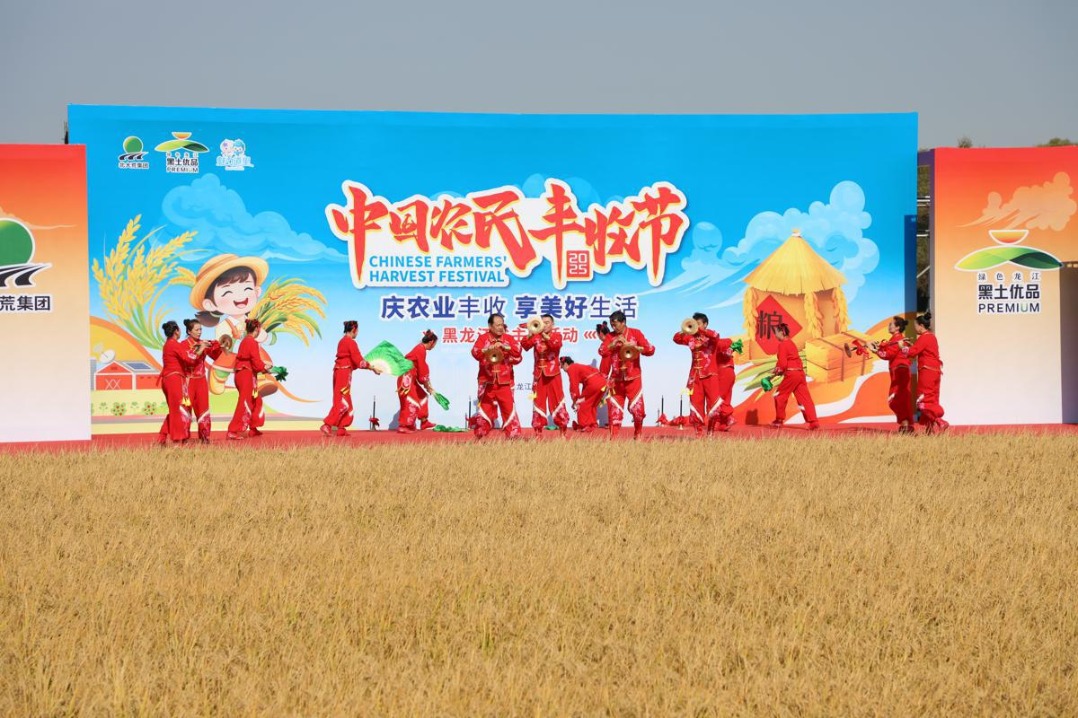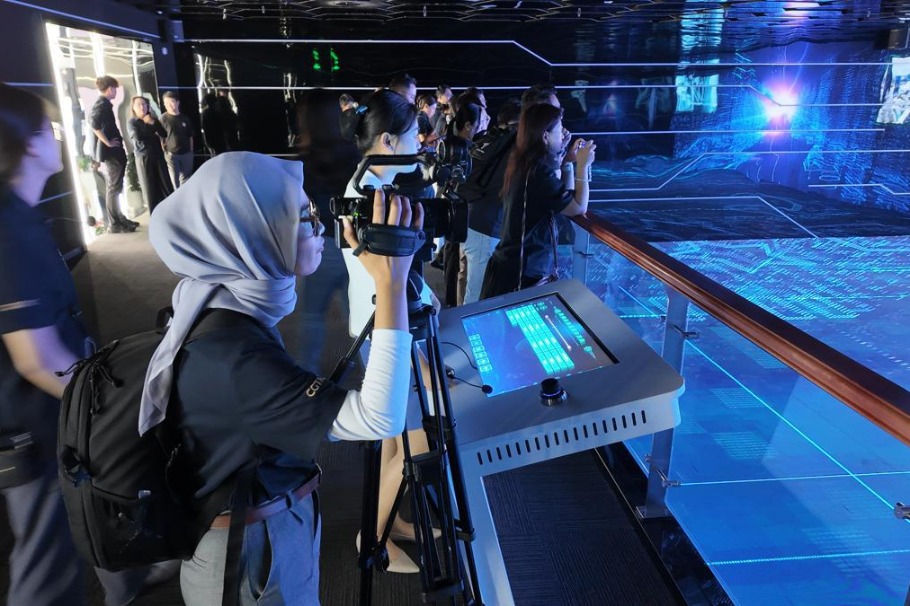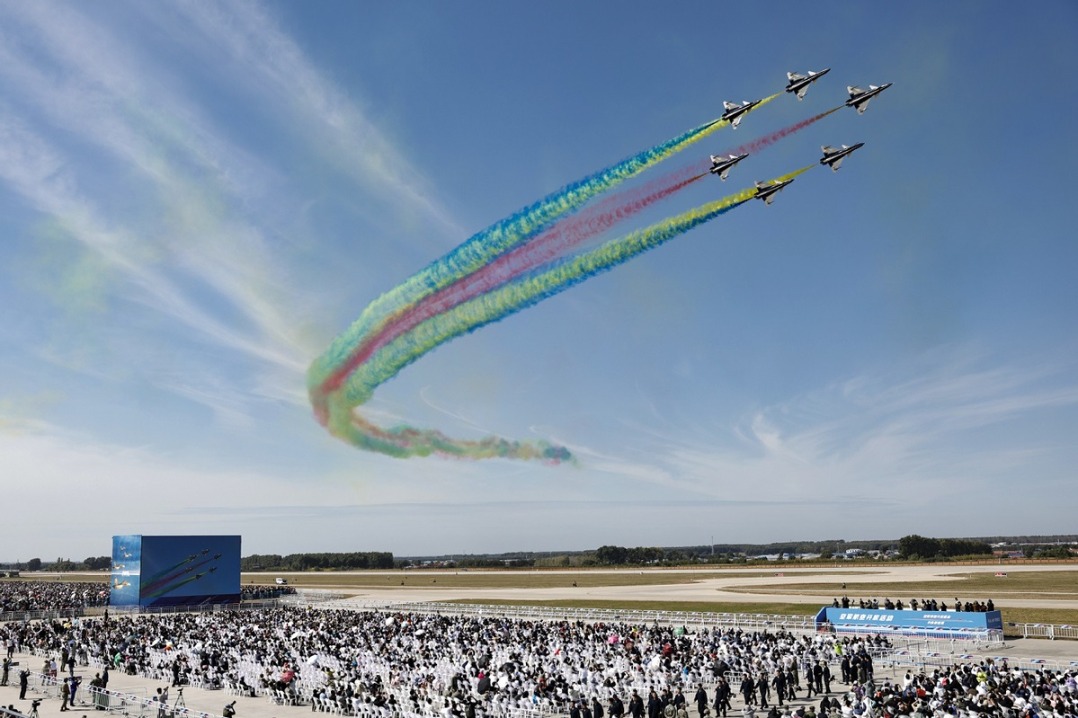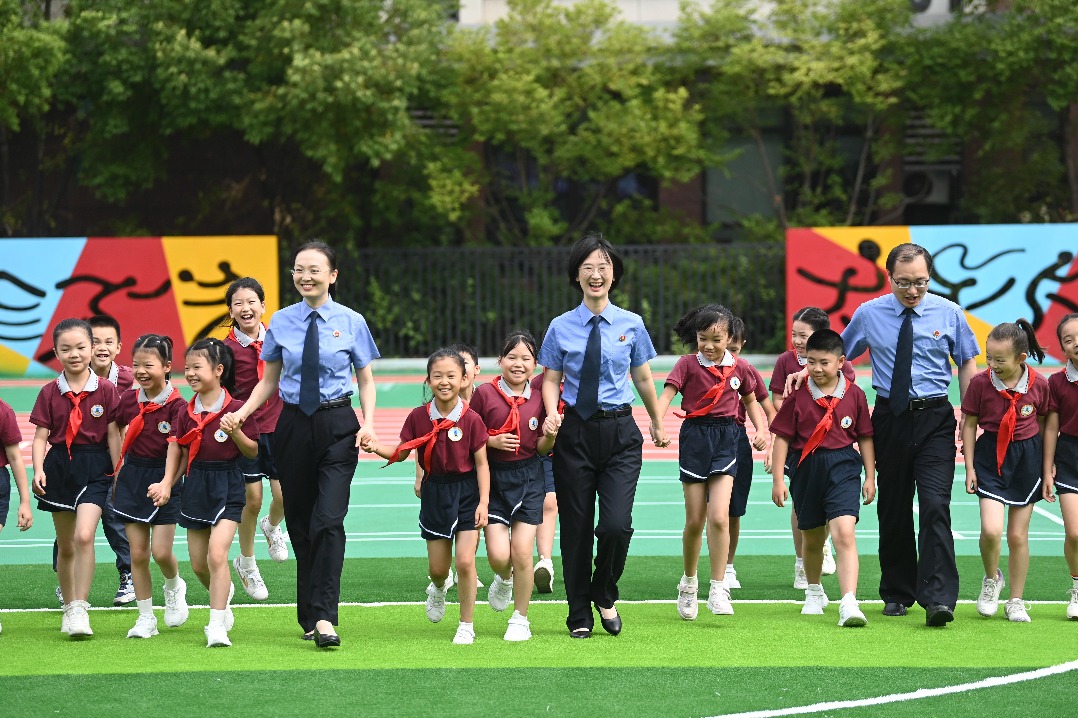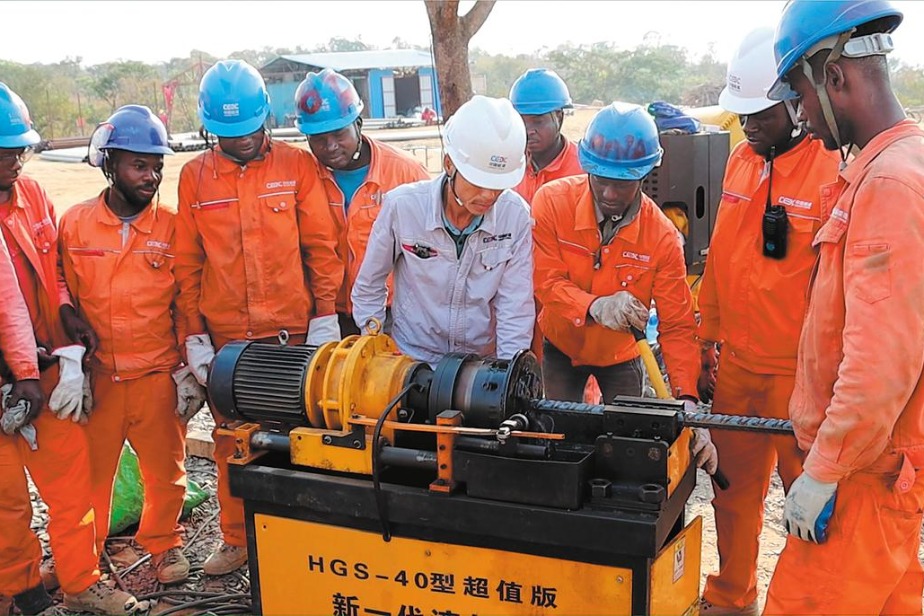New street recreates 'flavor of old Beijing'

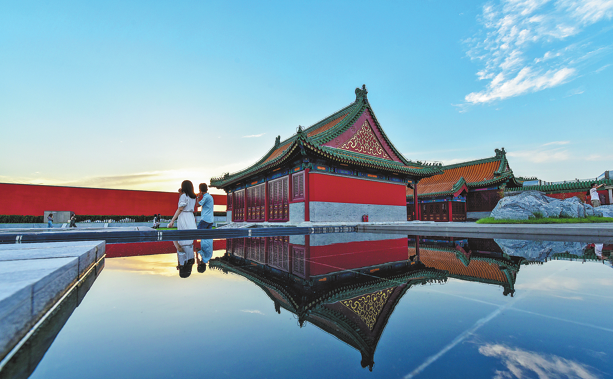
A new pedestrian street has opened in Beijing's historic Longfu Temple area, bringing modern shops and cultural experiences to a site with centuries of history.
The street, which opened to the public on Sept 17, is intended as a new cultural landmark for the capital. More shops and restaurants are set to launch in the last quarter of this year.
Foreign guests attending the Beijing Culture Forum on Sept 23 and 24 toured the site and praised its revival.
"The street is introducing elements that appeal to younger visitors, such as performances, markets, sports and outdoor activities," said Gao Tianliang, spokesperson for Beijing New Longfu Cultural Investment Co.
The project has already attracted a number of high-profile "first stores" to Dongcheng district, including the Mahua Fun Age A99 Theater for comedy plays, the first designer hotel in North China under the NOA brand, China's first 7mesh cycling-themed shop, the first Red Star Forward Fresh Milk Cake store and a new concept store by outdoor brand Shanshui. Well-known names such as Sony ExploraScience and All Time Space have also set up outlets.
Time-honored Beijing brands are joining in with a modern twist. Traditional medicine producer Tongrentang has opened a cafe serving TCM-flavored drinks such as goji berry and dried tangerine peel lattes alongside herbal pancakes, while Daoxiangcun has launched a themed "treasure hunt" store for its dim sums.
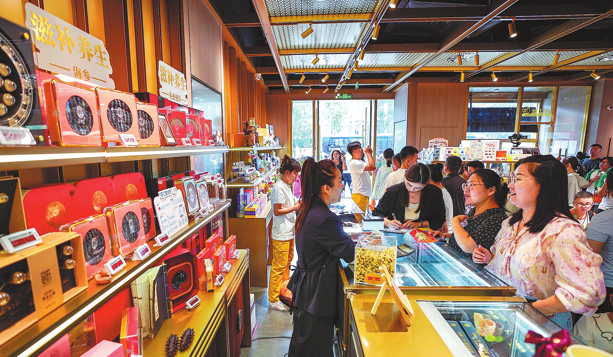
"Our bread uses honey instead of sugar, as everyone knows excessive sugar intake is unhealthy. We also offer new Chinese-style coffees like goji berry latte, dried tangerine peel latte... all integrating food and medicine," said store manager Dai Xihong.
Dai also introduced the unique Chinese pancakes, made with olive oil-fried crispy layers, two sterile eggs, and a special sauce made from over 10 Chinese herbs, which have become a hit among food enthusiasts.
On the eve of the opening day in July, young visitors in Chinese costumes lined up to photograph themselves with mugwort bread and herbal coffees, creating a colorful scene at Longfu Temple.
Older Beijingers have also returned. Zhao Yang, 73, who brought her granddaughter, said she wanted to "savor the old Beijing flavor" and remembered buying a marriage blanket at the former Longfu Plaza.
Longfu Temple was built in 1452 during the Jingtai period of the Ming Dynasty (1368-1644) and later served as a royal incense temple during the Ming and Qing (1644-1911) dynasties.
From the Qing Dynasty and before the founding of new China in 1949, Longfu Temple was renowned as one of Beijing's most famous temple fair venues. Longfu Temple Fair gained a reputation as a "cultural temple fair" due to its focus on antique books, cultural artifacts and art transactions, earning the esteemed title of "Crown of All Markets".
Fires in 1901 and again in 1993 destroyed much of the complex and later diminished the appeal of the commercial street that replaced it.
The new Longfu Street aims to blend modernity with creative culture. Shen Yi, manager of Frienday shop, said: "Like many Beijingers, I have profound love for the Longfu Temple area, and that's why I opened a 150-square-meter shop with trendy bicycling cultural products this year. I believe a new Longfu Temple street will become increasingly rich in creative cultural atmosphere, more stylish and internationalized."
Zhang Jingcheng, director of China Creativity Industry Research Center and a government consultant for Dongcheng district, noted: "Dongcheng is expected to boost cultural productivity and fashion consumption, leveraging itself from the history of the Central Axis, Longfu Temple and other traditional historical sites."
yangcheng@chinadaily.com.cn


















